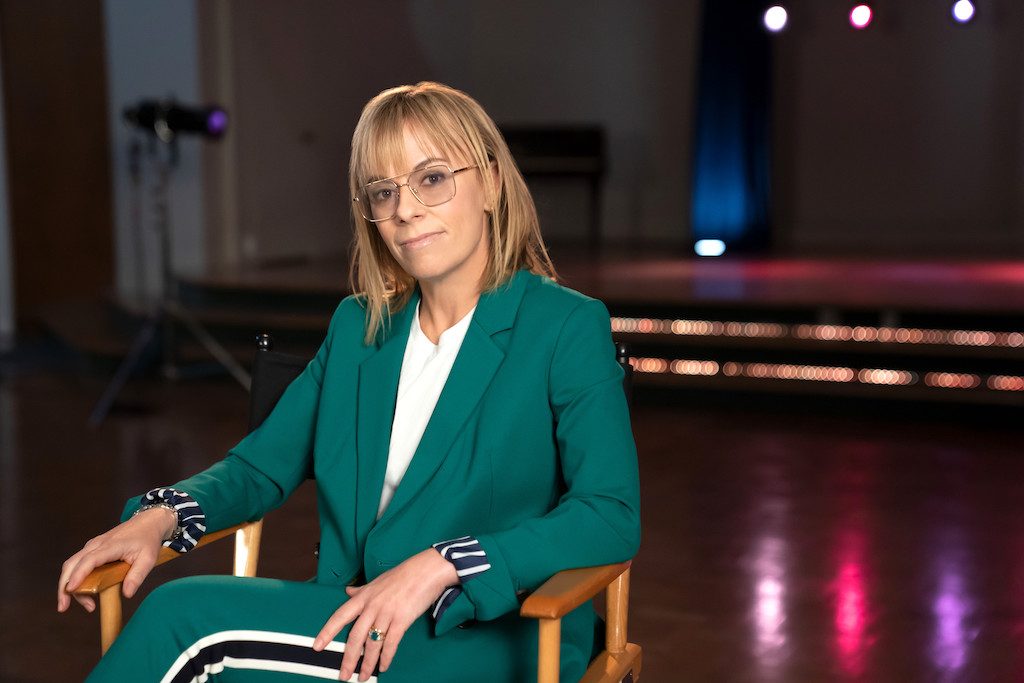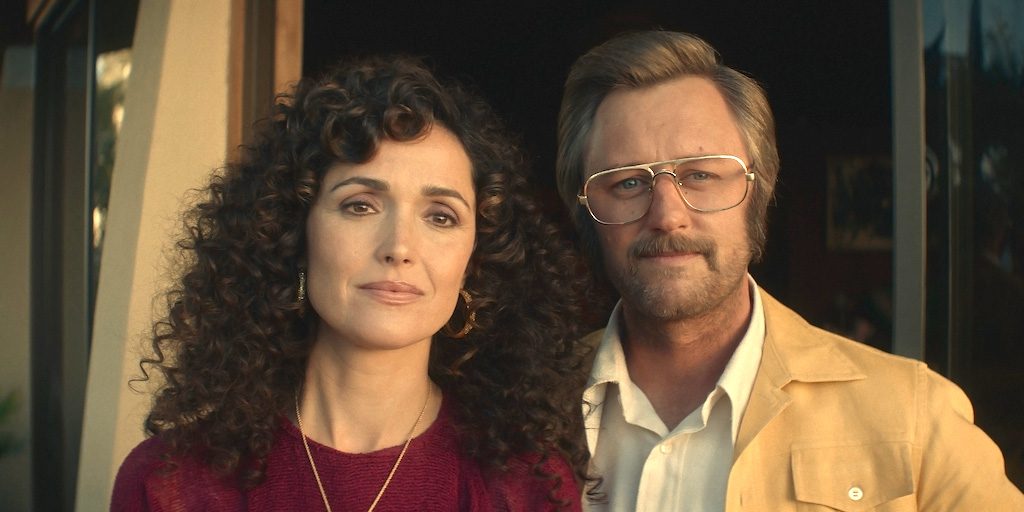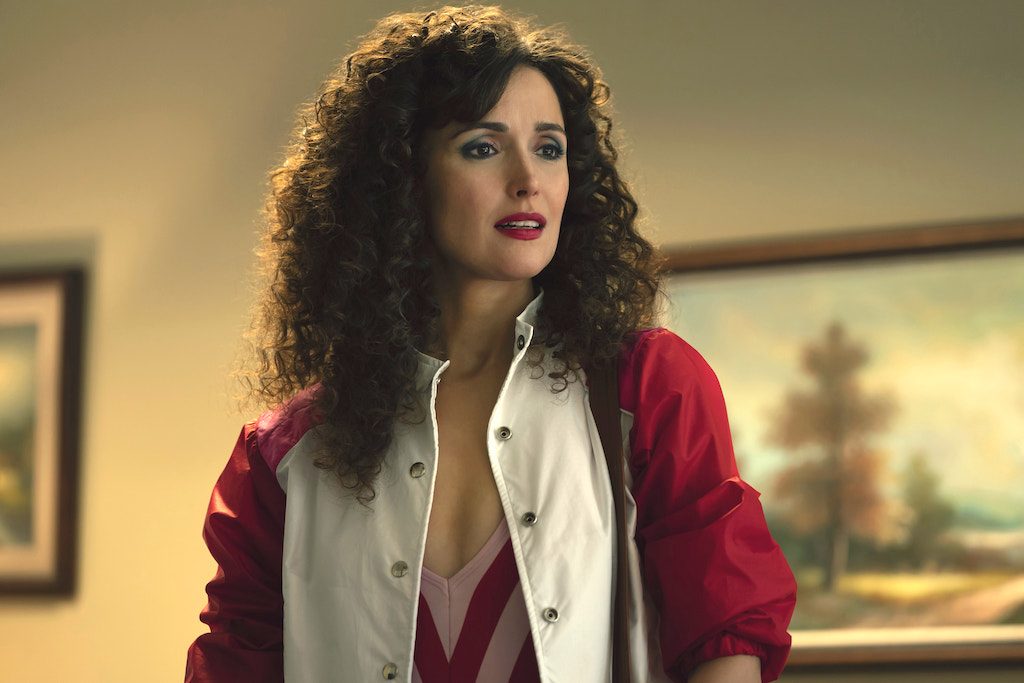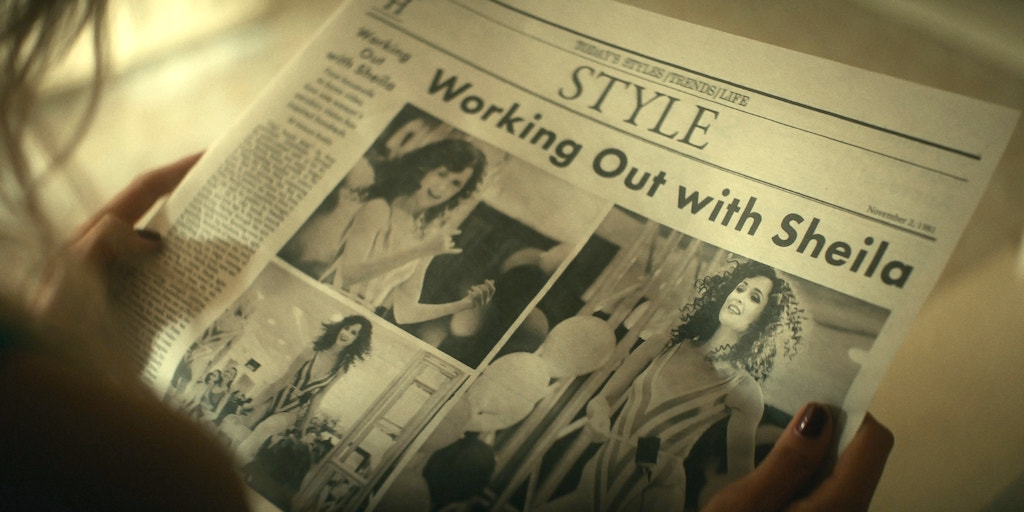The eighties in Southern California was a memorable time – sun, sand, surf, politics and… aerobics. Studios sprang up everywhere with classes catering to all levels. If you couldn’t get to one, you could buy a workout video and get fit in the comfort of your own home. Writer Annie Weisman (Almost Family, The Path) tapped into this vein to create Physical. She spoke to Creative Screenwriting Magazine about what this project means to her.
Weisman originally wrote Physical on spec several years ago. She wanted to write about the eighties. “I wrote about the cultural transition in Southern California through the evolution of one woman Sheila Rubin (Rose Byrne).”
“Sheila comes into her power through exercise at a time when it was considered a radical idea for women.” She found her strength – physical, economical, and emotional through ‘ working it.’ The eighties also coincided with the birth of video tape technology, which Weisman capitalized on to its fullest extent in Physical.
Birth Of An Era
The era was a counter culture offering to the sixties when her parents came of age – a period of activism, rebellion and turbulence. “I grew up in the shadow of the sixties when Ronald Reagan was the Governor of California. Then he became President during the eighties.” The era of Physical represented my childhood, “Something optimistic, peaceful, and idealistic,” she said.
Californians were disenchanted with the mythology of the era and something new was dawning
Physical was deliberately set in San Diego – Del Mar twenty miles to the north to be precise. “Del mar is a surf community which is constantly changing… the sea is shifting, and moving (an apt metaphor for the culture).” A turbulent ocean represents our war with nature. “Some people want to build malls and condos, while others want to keep the coastline pristine. The ocean is a source of conflict.”

Annie Weisman
Annie Weisman also wanted to show a darker side to the romanticized portrayals of Californian beach life on our screens. “It was shallow and didn’t represent the complexity of our world. I wanted to change that.”
Danny Rubin (Rory Scovel), Sheila’s husband is also going through his own tumultuous time, not all for the better. He’s emasculated, broke, and running for Mayor. “Both Sheila and Danny are awakening, but Danny is taking much longer to shift.” By the end of the season, Danny realizes that he was clinging onto the last vestiges of white male privilege, forcing him to reflect on his life.
The Veneer of Marriage
Despite the smiles and fundraisers, Sheila and Danny’s marriage is fragile and vulnerable. “Marriage is such a primary relationship. Sheila played very conventional in role in it,” continued Weisman. The eighties also ushered in an increase in divorce rates and their social acceptance. “Marriage became less of a given, especially when people married young, and they could now explore options for a better life.”
Sheila Rubin is a deeply-layered character seeking more to life than simply a change. She juggled being a wife, a mom, and an entrepreneur. Ironically, being the best mother wasn’t on top of her priority list. She didn’t feel any shame about it. “Parenting wasn’t a verb,” mused Weisman. “Motherhood is something Sheila stumbled into as a consequence of marriage.” That said, she always nurtured and raised her daughter, but never felt the urge to control her childhood. Physical was honest in depicting a woman who wasn’t defined by her motherhood. “Sheila walked the tightrope between her ambitions and her responsibilities.”
Sheila is motivated by her deep wants and deep fears. “She wants to be heard. This is both her deepest want and her deepest fear. If people hear who she really is, they might reject her.”
She’s spent her whole life wanting to be seen, but what she really wants, is to be heard.
Sheila often breaks the fourth wall in Physical to contrast her internal conflict with her external one. “She’s always at odds with herself.” The voices continued until they became unbearable and pushed Sheila into her conflict and forced her to confront rather than avoid her issues.

Sheila Rubin (Rose Byrne) & Danny Rubin (Rory Scovel)
Despite this internal monologue technique giving the audience direct access to Sheila’s mindset, it posed some difficulty in her interactions with the other characters.
Physical straddles a variety of genre shades – skating between drama, comedy, dramedy, and satire. Annie Weisman checked all the boxes and declared it all of the above. “I like to write social commentary. Personally it’s a comedy, but formally, it’s a drama.”
The Video Aerobics Explosion
Female Fitness was threatening to society. “Women sweating was still taboo. Women still had perfect hairdos and wore girdles in public.” Aerobics represented freedom. It also brought women together and created a sense of community and joy in each other’s physical presence. The atmosphere was more co-operative than competitive.
“Aerobics is loud. There is kicking and punching. It has a bigger energy to it,” extending its impact beyond exercise. “It wasn’t ballet which was light and petite.”
The pilot script for Physical had many years to ruminate in Weisman’s mind before it was finally produced. She had written a comprehensive series bible before the TV writers’ room convened. She wrote the season arcs for each character for season 1 and potentially season 2. She also performed some research of the place and time. “We researched the vocabulary of the fitness, political, and real estate worlds.”

Sheila Rubin (Rose Byrne)
When the TV writers’ room finally commenced, “I started with a picture and then discussed the big issues of where each character is heading.” Team Physical only spent a week or so breaking the season. “Then we got to it and started breaking stories.” They asked common character-building questions like what does each character want, how do they get it, what’s in their way, and what’s the worst consequence of not getting it. “We did this for each character and then blended it into four acts per episode. Acts are the bone structure to hang your story onto.”
Sheila Rubin’s journey is certainly relatable regardless of your passion. “I want the audience to be like her, believe in themselves and pursue their better positions and desires and leave their critical voices behind. I want the audience to tap into the good side of that power.”
